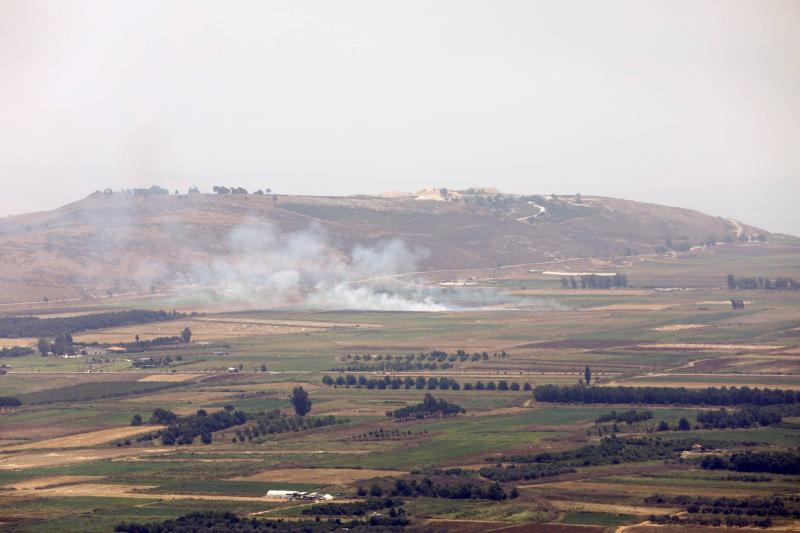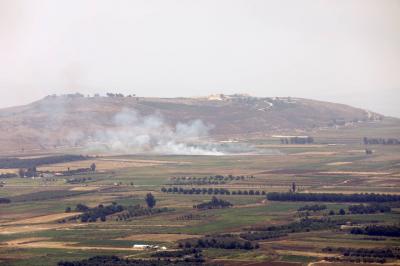Ghassan Charbel
The Israeli government is pursuing a highly dangerous policy. Storming the courtyards of Al-Aqsa Mosque adds fuel to an already raging fire. The insistence on expanding settlements leaves the owners of the land with no choice but to desperately defend it. The commitment to exclude legitimate and moderate Palestinian factions opens the door wide for confrontation. Continuing to undermine the remaining outcomes of Oslo practically means returning to an open conflict using all means. It is no surprise that Netanyahu's current government has become a burden on the allies of the Hebrew state, who have grown accustomed to justifying its actions. Allies are unable to find mitigating reasons for this excessive commitment to a policy of rampaging fires.
Some believe that the current Israeli government is trying to benefit as much as possible from the international climate that arose following the Russian invasion of parts of Ukrainian territory. They say that the Russian war in Ukraine has brought back to the forefront a policy of reliance on force, amid a shocking absence of the authority of international law and the United Nations. However, possessing an advanced military machine may mean having the ability to deliver painful strikes or win certain confrontations, but it certainly does not mean having the ability to settle disputes once and for all.
Benjamin Netanyahu refuses to learn from the experiences of his predecessors. The Israeli army successfully occupied Beirut in 1982 and expelled Palestinian Liberation Organization forces from Lebanon. Today, four decades later, Palestinian rocket messages are once again launching from Lebanese territory, even if it is clear that they are launched with Iranian blessings. General Yitzhak Rabin tried the policy of breaking bones and then reached a painful conclusion: that Israel cannot erase the Palestinian people from the equation, even if it succeeded in eliminating symbols and leaders. In light of this conclusion, Rabin accepted the "Oslo Accords" and shook hands with Yasser Arafat in the White House garden.
Those who accompanied that phase know how difficult it was for the Palestinian leadership to make painful concessions that were essentially about "settling for part of the land" to save what remained of it against the onslaught of settlement. Only a fully legitimate Palestinian leader like Yasser Arafat could make such difficult decisions. I still remember what the great Palestinian poet Mahmoud Darwish told me in Tunisia, summarizing it as "I fear looking at the map." Darwish was aware of the agreement before its signing and also accepted to diminish the scope of his dreams.
Israeli leaders after Rabin did not seize the opportunity that Arafat's signing of a peace agreement represented. They also did not take the opportunity that the Arab Peace Initiative presented. We saw General Ariel Sharon exploit the aftermath of the September 11, 2001 attacks to undermine the terms and spirit of the Oslo Accords.
Netanyahu's skill, which has allowed him to remain in office longer than all his predecessors, cannot be denied. It cannot be denied that he has forged strong relationships with major powers over the past decade. He maintained the traditional alliance with the United States despite some disagreements with various administrations. He also established a strong relationship with an important player named Vladimir Putin. A clear indication of this is that Russian military intervention in Syria has given Netanyahu an open opportunity to launch repeated attacks against Iranian targets in Syria. One can also discuss Netanyahu's relationships with Europe, China, and India. Even after the outbreak of the Ukrainian war, Israel managed to secure contracts to enhance air defense in some fearful countries.
All of these successes ultimately seemed like a form of escape. They represent an attempt to settle the conflict with the Palestinians but on the basis of fleeing from its essence. Attempts to escape will not succeed, no matter how powerful the Israeli military machine becomes. The army that can deliver painful strikes against distant targets in the region ultimately cannot prevent attacks carried out by individuals in the West Bank or elsewhere. Any realistic reading clearly indicates that Israel cannot enjoy stability unless it acknowledges the rights of Palestinians to an independent state. The aspirations of an entire people cannot be erased. It is hard to envision Israel as stable unless the Palestinian people feel they live within their own state. This people has roots in its land, a depth in its nation, and a dream of restoring rights that is passed from generation to generation despite setbacks and sacrifices.
Israel tries to interpret the rockets fired by Ismail Haniyeh from Beirut and the rockets launched from Syria as Iranian messages. They may carry such a signature. It also attempts to link the increase in operations within its territory to the Iranian program. Iranian fingerprints may be present in all of that. However, the question that arises is: Would these rockets have been launched if successive governments had respected the Oslo process or had taken the Arab Peace Initiative seriously?
The exchange of Iranian-Israeli strikes is ongoing and open, but the question is: Are we on the path to a war in which we will witness thousands of rockets being launched and fires igniting along Israel's borders with Syria and Lebanon, and perhaps even beyond? What about the role of Russia, which has a military presence on the ground in Syria? What about the role of China, which has presented itself internationally, for the first time through the Saudi-Iranian agreement, as a peace broker? Is it true that Israel is concerned about the transformations affecting the international scene, as well as about the emergence of a multipolar Middle East? And are old and new crises being treated with a policy of running into fires, instead of returning to the essence of the conflict?




